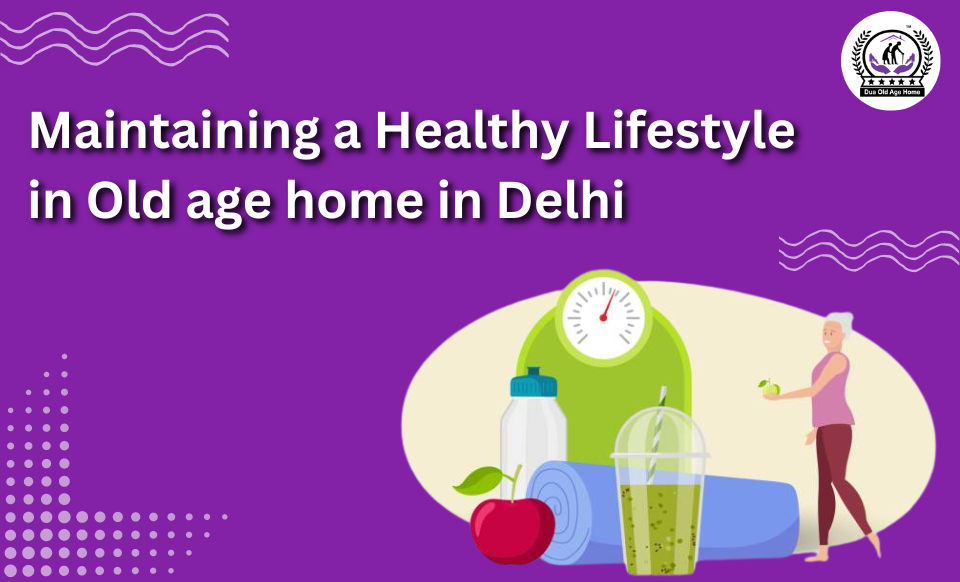
The safety and welfare of the elderly are becoming increasingly crucial as civilisations age. Although our ageing population deserves the best care and attention possible, the question of whether we are doing enough to ensure their welfare still exists. Even if attempts have been made to meet the needs of senior citizens, much more can and should be done.
Numerous issues that older people confront can affect their physical health, mental health, and general quality of life. For instance, healthcare is essential in ensuring older people receive the support and care they require. Even though geriatric care has advanced, it is still necessary to improve access to healthcare services specifically designed to meet the unique requirements of elderly people. Routine health examinations, preventive treatment, and specialised geriatric care teams can significantly enhance their overall health and longevity.
Protection, though, goes beyond one’s bodily well-being. Elderly people face considerable social isolation and loneliness risks, hurting their mental health and general well-being. Creating community-based programmes and projects that encourage social interaction and intergenerational activities might help older individuals feel less alone and more a part of their community. Furthermore, combating elder abuse—financial, emotional, or physical—requires enhanced reporting mechanisms, increased awareness, and intervention measures to safeguard older people from damage.
A further critical component of protecting older people is financial security. Their assets can be saved, and frauds can be avoided by strengthening rules, implementing financial literacy programmes, and assisting i n managing finances. Older copies are particularly susceptible to financial exploitation since they are frequently the victims of fraud and financial abuse.
n managing finances. Older copies are particularly susceptible to financial exploitation since they are frequently the victims of fraud and financial abuse.
Another crucial aspect is developing age-friendly environments. We can help older persons keep their freedom and mobility by implementing age-friendly infrastructure, such as accessible public areas and transportation. Creating housing options that meet their particular requirements, such as secure homes with good access, can enhance their security and well-being.
As family members frequently take on the burden of caring for older relatives, carer assistance is also crucial. To ensure that carers can provide their loved ones with the best care possible, they must be equipped with respite care services, counselling, and training programmes.
Technology and innovation developments offer a chance to enhance the lives of older people. These advancements range from user-friendly equipment to telehealth services and assistive technologies. Integrating these advances can improve their safety, health monitoring, and general quality of life.
Promoting policy modifications and working cross-sectoral are essential to safeguarding older individuals’ rights and well-being. We can address significant concerns affecting more senior people, such as social assistance, elder abuse prevention, and healthcare access.
What can we concentrate on doing more to safeguard our senior population?
There is always more that can be done to protect older people, despite efforts being made to secure their well-being. Here are some places where we might concentrate our efforts to safeguard our senior population better:
1. Healthcare: Improving healthcare options especially suited to senior citizens’ requirements is essential. This entails making high-quality healthcare more widely available, as well as frequent health checks and preventive care. Geriatric care teams with specialised training can be used to handle the unique medical, physical, and emotional requirements of older people.
2. Social support: Loneliness and social isolation can significantly impact seniors’ well-being. Implementing social engagement-promoting initiatives, such as senior clubs, community centres, and intergenerational activities, can benefit people who are socially isolated and enhance their quality of life in general.
3. Elder abuse prevention: Preventing elder abuse is essential, and options for reporting and intervention should be available. Training programmes for carers, law enforcement officials, and healthcare professionals can assist in spotting abuse indicators and in offering older people the proper support and protection.
4. Financial security: Elderly people are frequently targets of financial fraud and exploitation. Stricter legislation, better financial literacy programmes, and assistance with money management can help safeguard people from fraud and guarantee their financial security.
5. Age-friendly infrastructure: Creating surroundings that are simple to navigate and have accessible public areas and transit can encourage older individuals’ independence and mobility. Designing housing options that meet their needs, like accessible apartments or single-story homes, can help improve their safety.
6. Support for carers: It’s essential to help family carers who look after elderly relatives. This includes services for respite care, counselling, and training courses to assist them in adequately managing caregiving’s physical and mental difficulties.
7. Innovation and technology: Using technology to improve life for older people can make a big difference. This includes creating user-friendly equipment, telehealth services for online medical consultations, assistive technologies, and innovative home solutions to increase safety and independence.
8. Policy alterations and advocacy: Encouraging local, state, and international policy modifications is crucial to safeguard older persons’ rights and well-being. Governmental organisations, non-profit organisations, and advocacy groups can collaborate to address problems like social support, elder abuse prevention, and healthcare access.
It’s important to remember that each location and community may have different needs and issues for older people. Therefore, designing activities to fit each population’s needs is crucial. We can significantly improve the lives of our senior people by combining the efforts of healthcare, social services, policy-making, and community involvement.
Conclusion
Even though our older population has been protected, there is always an opportunity for improvement. We can improve our senior citizens’ protection and living standards by emphasising healthcare, social assistance, elder abuse prevention, financial stability, age-friendly infrastructure, carer support, technology, and campaigning for policy reforms. Society as a whole should place a high premium on the welfare of senior citizens.
The healthcare system should be customised to match their unique needs to ensure that older persons get high-quality care and preventive services. Through neighbourhood initiatives and cross-generational events, social interaction can be encouraged, and loneliness can be fought. Prevention strategies for elder abuse should be improved, and services for reporting and assistance should be easily accessible.
Stricter laws, financial literacy initiatives, and assistance with money management might lessen financial exploitation and fraud that targets older people. Age-friendly surroundings, such as easily accessible public areas, modes of transportation, and housing options, support older individuals’ freedom and safety.
Supporting family carers is essential, and offering them training programmes, counselling, and respite care can lessen their difficulties. Through user-friendly gadgets, telemedicine services, and assistive technologies, embracing technology and innovation may enhance the lives of older people.
Advocacy and policy changes are essential for the rights and welfare of older individuals to be protected. Collaborating across sectors and pursuing fundamental changes can ensure comprehensive support and protection for the aged population.






